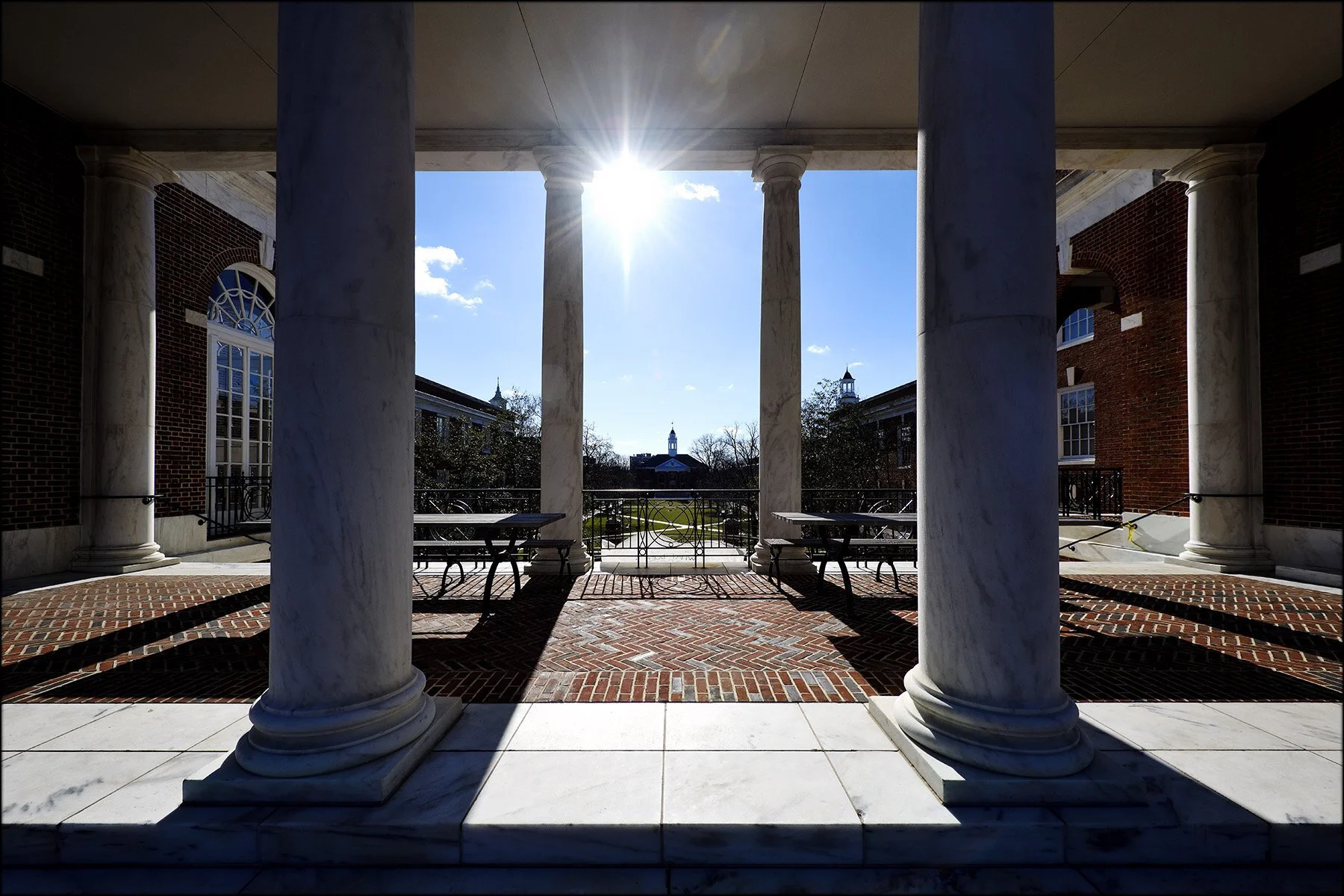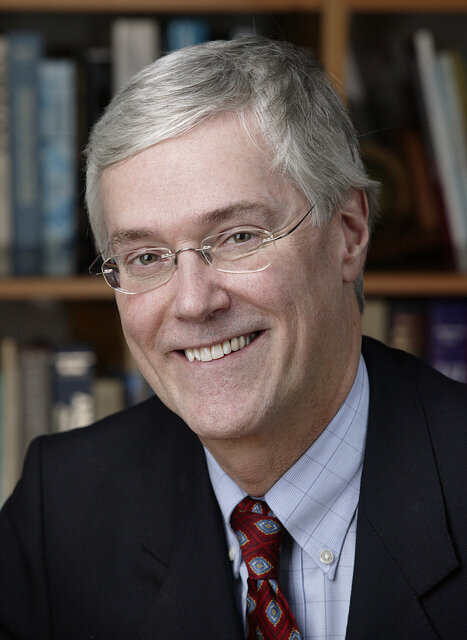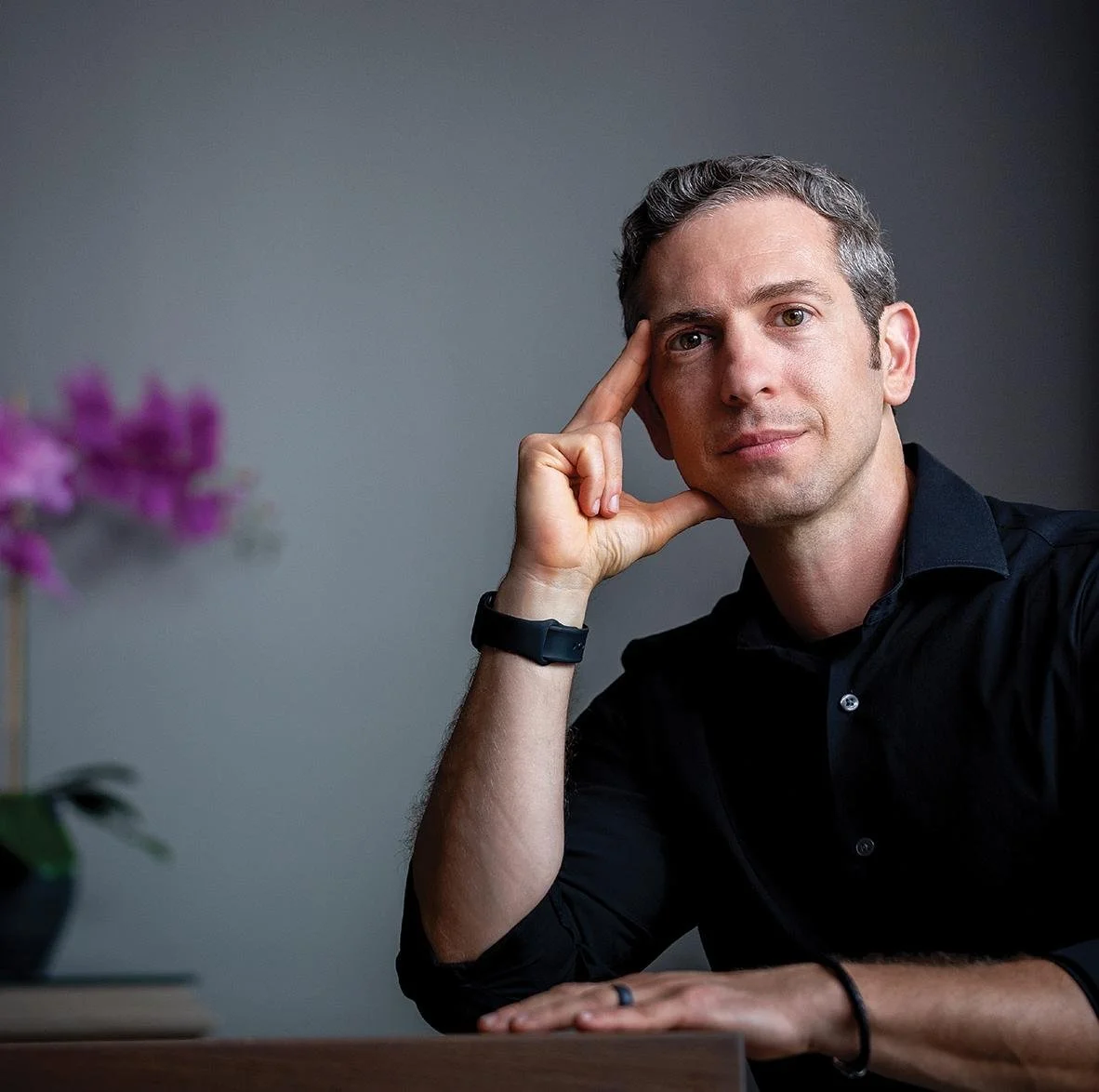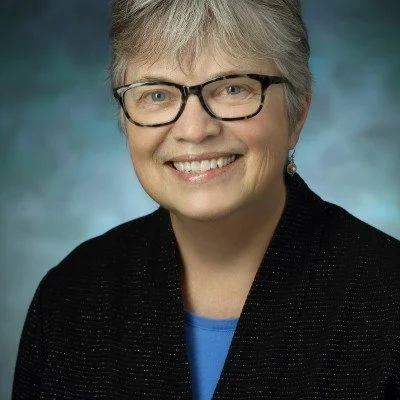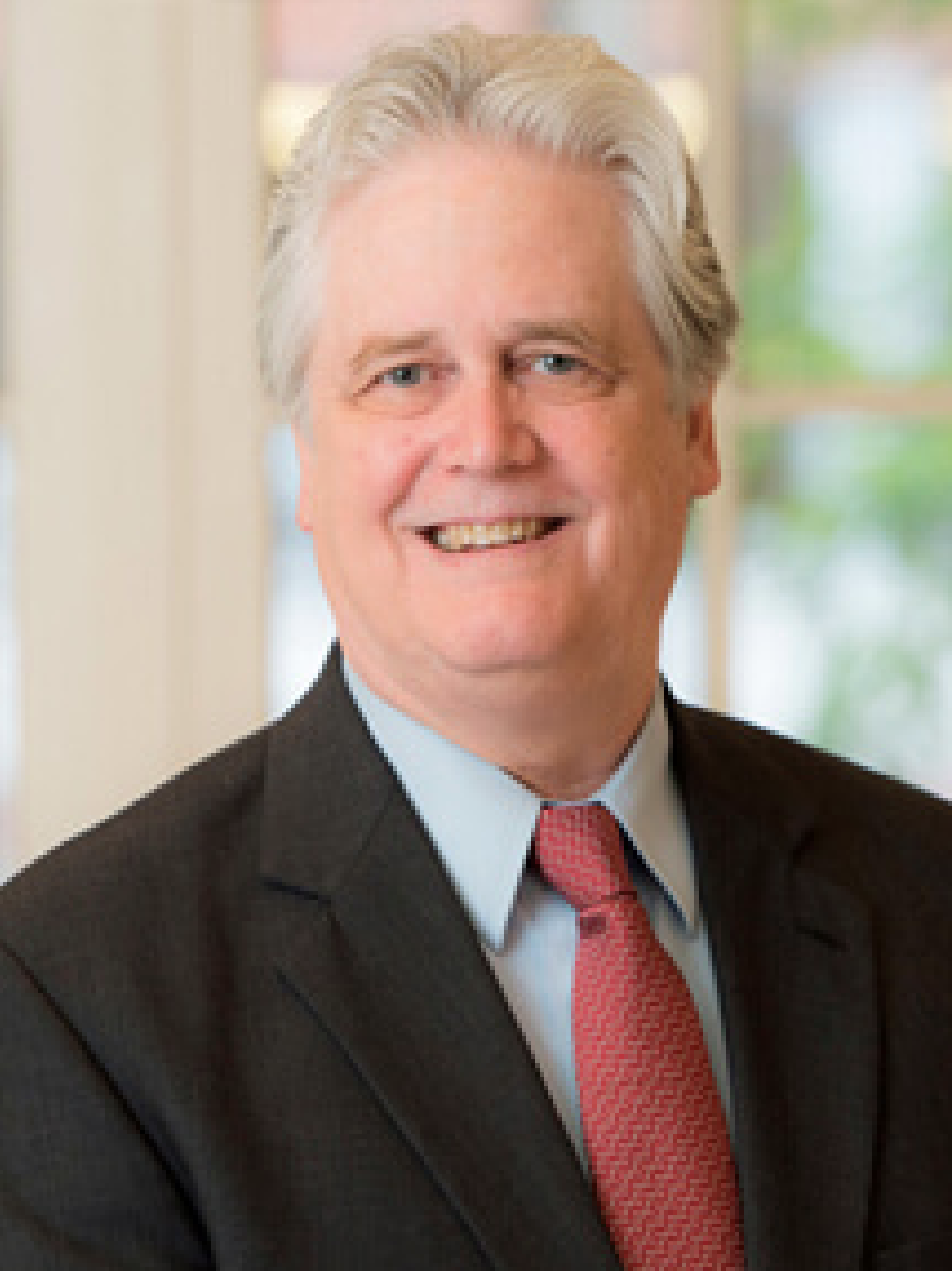Featured Speakers of The 2025 GHLC at JHU
Thomas Quinn, MD, MSc
Founding Director of the Johns Hopkins Center for Global Health; NIH Distinguished Investigator; Associate Director of International Research at the National Institute of Allergy and Infectious Diseases (NIAID); Chief of the International HIV/STD Section in the NIAID Laboratory of Immunoregulation; Professor of Medicine and Pathology in the Johns Hopkins School of Medicine; Professor of Epidemiology, International Health, Molecular Microbiology and Immunology in The Johns Hopkins School of Public Health; Professor of Nursing in The Johns Hopkins School of Nursing
Dr. Thomas Quinn is professor of medicine and pathology in the Johns Hopkins School of Medicine and professor of international health, epidemiology, and molecular microbiology and immunology in The Johns Hopkins School of Public Health, and professor of nursing in the Johns Hopkins School of Nursing. In 2006 he was appointed founding Director of the Johns Hopkins University Center for Global Health. He serves as advisor/consultant on HIV and STDs to the World Health Organization, Office of the Global AIDS Coordinator (PEPFAR), UNAIDS, and the FDA.
He serves as Associate Director for International Research at the National Institute of Allergy and Infectious Diseases. He is a member of the Institute of Medicine of the National Academy of Sciences, and is a fellow of the American Association for the Advancement of Science. He is a fellow of the Infectious Diseases Society of America and a member of the American Association of Physicians. He is an author of over 900 publications on HIV, STDs, and infectious diseases, and serves on multiple editorial boards.
Among his professional activities, Dr. Quinn is an alternate member of the Technical Panel of the Global Fund to Fight AIDS, Malaria, and Tuberculosis and has been on Advisor/Consultant on HIV and STDs to the World Health Organization, UNAIDS, and the U.S. Food and Drug Administration. In October 2004 he received membership in the Institute of Medicine.
Mathuram Santosham, M.D., MPH
Founder and Director Emeritus of the Center for Indigenous Health at the Johns Hopkins University; Professor of Pediatrics and Pediatric Infectious Diseases at Johns Hopkins; Professor of Immunology, International Health and Epidemiology at the Johns Hopkins Bloomberg School of Public Health
Mathuram Santosham, M.D., is a professor of pediatrics and pediatric infectious diseases at Johns Hopkins, as well as professor of immunology, international health and epidemiology at the Johns Hopkins Bloomberg School of Public Health, and director of both its Health Systems Program and Center for American Indian Health, Johns Hopkins Bloomberg School of Public Health. He is an expert in oral rehydration therapy, for which his research is world-renowned. Dr. Santosham has conducted numerous clinical trials in the U.S. and worldwide on the safety and efficacy of oral rehydration therapy and gastroenteritis. In the last 15 or more years, he has evaluated numerous pediatric vaccines among the Navajo and Apache Indian populations including Hib, Hepatitis A, rotavirus and pneumococcal vaccines. He conducted the pivotal PRP-OMP conjugate vaccine efficacy trial, which led to the licensure of the vaccine (Pedvax Hib).
He has also conducted a pivotal clinical trial on the efficacy safety of the currently licensed pneumococcal conjugate vaccines. His group has also conducted a series of studies on the immunology, pathogenesis, dynamics of carriage and correlates of protection for pneumococcal infections. His group is also currently conducting a clinical trial to evaluate the safety and efficacy of an enhanced monoclonal antibody for the prevention of RSV infections among the Navajo and Apache Indian populations.
Dr. Santosham is the principal investigator (P.I.) on a $37 million dollar grant from GAVI termed the Hib initiative. The main objective of this initiative is to assist the poorest countries in the world to make an appropriate decision about introduction of one of the Hib vaccines into their national programs. As part of the initiative, a series of studies have been conducted to evaluate the disease burden of Hib in different countries. In addition, cost effectiveness of the vaccine and evaluation of the introduction of Hib vaccines in several countries have been evaluated.
Megan Weil Latshaw, PhD, MHS
Associate Scientist at the Johns Hopkins Bloomberg School of Public Health; Director of the Master’s Degree Programs in the Department of Environmental Health & Engineering at the Johns Hopkins Bloomberg School of Public Health
Dr. Megan Weil Latshaw serves as Director of the Master’s degree programs in the Department of Environmental Health & Engineering at the Johns Hopkins Bloomberg School of Public Health, where she also teaches at both the undergraduate and graduate levels. She is core faculty for the Bloomberg American Health Initiative’s Environmental Challenges focus area and serves as Faculty Co-Director for Education at the Johns Hopkins Institute for Planetary Health, helping integrate justice-centered planetary health into curricula across the university.
Dr. Latshaw has held several national leadership roles, including Immediate Past Chair of the American Public Health Association’s (APHA) Intersectional Council, Chair of APHA’s Environment Section, and member of the APHA Executive Board. Previously, she directed Environmental Health Programs at the Association of Public Health Laboratories, where she led the creation of the National Biomonitoring Network and helped lay the foundation for a nationwide environmental health surveillance system. She also served as Senior Director for Environmental Health Policy at the Association of State and Territorial Health Officials, where she helped establish the State Environmental Health Directors group.
Dr. Latshaw earned her PhD in Environmental and Occupational Health, MHS in Environmental Health Sciences, Certificate in Risk Sciences and Public Policy, and BA in Biology—all from Johns Hopkins University. She has authored multiple peer-reviewed articles, served on more than a dozen national committees, and frequently presents at national and international conferences.
Adam Seth Levine, PhD, MA
Stavros Niarchos Foundation Agora Institute Associate Professor of Health Policy and Management at the Johns Hopkins University Bloomberg School of Public Health
Dr. Levine is currently studying the role of science in American life, and in particular when scientists collaborate with civic and political leaders to address pressing public health, environmental, and other challenges (click here for several examples of these findings). Here a tension arises because these collaborations often entail strangers working together, yet many people are hesitant to interact with strangers even if they share interests and concerns. His work identifies key relational factors that, along with effective communication, help spur new successful collaborations. Thanks to generous support from the Rita Allen Foundation, he’s currently devoting substantial time to a new book. The tentative title is Seeking Science: When, Why, and How Community Leaders Bridge a Cultural Divide.
Dr. Levine’s initial work focused on one of the core challenges associated with organizing powerful new constituencies: persuading people to voluntarily spend money and/or time on the cause. Here a tension arises because many political issues directly refer to financial and/or time constraints that people are experiencing. Being reminded about these constraints diminishes their willingness to voluntarily spend resources.
He explores this tension with respect to economic insecurity issues (e.g. health care costs, education costs) in his first book, entitled American Insecurity: Why Our Economic Fears Lead to Political Inaction, published with Princeton University Press in 2015. The book was the subject of a NY Times op-ed immediately after its release, and also won a 2016 Best Book Award from the American Political Science Association for how it used experiments and psychology to answer a politically-important question. The book was in part based on his dissertation, which won the E. E. Schattschneider Award for the best dissertation on American government.
Since publishing American Insecurity, he and several co-authors have found that this same tension arises when trying to build powerful constituencies to address other problems such as climate change, the national debt, and traffic congestion.
Donald Warne, MD, MPH
Co-Director, Johns Hopkins Center for Indigenous Health; Provost Fellow for Indigenous Health Policy, Johns Hopkins Bloomberg School of Public Health; Professor, Johns Hopkins Bloomberg School of Public Health
Donald K. Warne, MD, MPH, is Co-Director of the Johns Hopkins Center for Indigenous Health and Provost Fellow for Indigenous Health Policy at Johns Hopkins University. A member of the Oglala Lakota tribe from Pine Ridge, South Dakota, Dr. Warne is one of the world’s leading scholars in Indigenous health, public health education, and health equity.
He is also a renowned physician and researcher of chronic health disparities. Prior to joining Johns Hopkins, he created the first Indigenous health-focused MPH and PhD programs in the U.S. or Canada at North Dakota State University and the University of North Dakota, where he also served as Associate Dean for Diversity, Equity, and Inclusion and led the Indians Into Medicine and Public Health programs.
His career spans clinical care for the Pima Indian community in Arizona, research at the NIH, and leadership roles with the Inter-Tribal Council of Arizona and the Great Plains Tribal Chairmen’s Health Board. A recipient of the APHA’s Helen Rodríguez-Trías Award for Social Justice and named among the Explorer’s Club “50 People Changing the World,” Dr. Warne holds degrees from Arizona State University (BS), Stanford University School of Medicine (MD), and the Harvard T.H. Chan School of Public Health (MPH).
Panagis Galiatsatos, MD, MHS
Associate Professor of Medicine at the Johns Hopkins School of Medicine
Dr. Panagis Galiatsatos, MD, MHS, is an Associate Professor of Medicine at the Johns Hopkins School of Medicine and a practicing pulmonologist and critical care physician at Johns Hopkins Medicine. He directs the Tobacco Treatment Clinic, co-directs Medicine for the Greater Good (MGG)—a community-centered public health initiative—and serves as Associate Director of the Hereditary Hemorrhagic Telangiectasia Center. Dr. Galiatsatos co-chairs the Health Equity Steering Committee and is Community Engagement Co-Director for the Baltimore Breathe Center, with his work impacting thousands of Baltimore residents through population health programs addressing smoking cessation, obstructive lung disease, and health disparities.
Born to Greek immigrant parents in Baltimore’s Greektown, he earned his medical degree from the University of Maryland School of Medicine and an MHS in clinical research from Duke University. He completed internal medicine residency at Johns Hopkins Bayview, followed by pulmonary and critical care fellowships at both the NIH and Johns Hopkins. His research focuses on socioeconomic drivers of lung health and effective cessation strategies, including innovative interventions like tobacco clinics in public housing . A skilled educator, Dr. Galiatsatos has launched programs like MGG, earned acclaim for an asthma and health-disparities curriculum in East Baltimore schools, and co-authored Building Healthy Community Partnerships Through Medical‑Religious Partnerships.
He is a trusted media voice on lung health, tobacco use, and COVID-19, with coverage in outlets such as The New York Times and frequent contributions on test accuracy and pandemic guidance . His leadership in equity, community engagement, and clinical excellence makes Dr. Galiatsatos a deeply valued member of the Johns Hopkins faculty and a champion for healthier, more just communities.
Jean Anderson, MD
Professor Emeritus, Johns Hopkins Berman Institute of Bioethics; Professor, Director of Division of Gynecologic Specialties, Johns Hopkins University School of Medicine Dept. of Gynecology and Obstetrics
Dr. Jean Anderson is the director of the Division of Gynecologic Specialties and professor in the Johns Hopkins Medicine Department of Gynecology and Obstetrics. Her areas of clinical expertise include HIV in women, reproductive tract infections and cervical cancer screening and prevention. Dr. Anderson has a joint appointment in the Department of Medicine and the Department of Population and Family Health Sciences at the Johns Hopkins Bloomberg School of Public Health. Dr. Anderson developed the Johns Hopkins HIV Women’s Health Program in 1991. She continues to direct this program, which has treated more than 1,500 women over the course of more than 6,000 visits.
Dr. Anderson’s research interests include psychological and behavioral factors related to the care and treatment of women living with HIV. She has extensive experience in urban and global women’s health and has published numerous articles and book chapters on pregnancy and HIV.
Dr. Anderson is a fellow of the American Congress of Obstetricians and Gynecologists and a member of the American Academy of HIV Medicine. She has been an invited peer reviewer for American Journal of Obstetrics and Gynecology, Journal of Women’s Health and Journal of Gynecologic Health. Dr. Anderson has been recognized six times by the Johns Hopkins Gynecology and Obstetrics House Staff with the Excellence in Teaching and Mentorship Award. She is the recipient of the 2013 Constance Wofsey Women’s Health Investigator Award from the AIDS Clinical Trials Group.
Dr. Anderson received her undergraduate degree in chemistry from David Lipscomb College and earned her M.D. from the Vanderbilt University School of Medicine. She completed her medical residency at Vanderbilt University Medical Center. Dr. Anderson joined the Johns Hopkins faculty in 1987.
Robert Bollinger, MD, MPH
Raj and Kamla Gupta Professor of Infectious Diseases at the Johns Hopkins University (JHU) School of Medicine; Founding Director of the Center for Clinical Global Health Education (CCGHE) and Associate Director for Medicine of the Johns Hopkins Center for Global Health
Dr. Bollinger is the Raj and Kamla Gupta Professor of Infectious Diseases at the Johns Hopkins University (JHU) School of Medicine, and he holds joint appointments in International Health at the Johns Hopkins (JH) Bloomberg School of Public Health, and in Community Public Health at the JH School of Nursing. He is Founding Director of the Center for Clinical Global Health Education (CCGHE) and Associate Director for Medicine of the Johns Hopkins Center for Global Health. He is board certified by the American Board of Internal Medicine in internal medicine and infectious diseases.
Dr. Bollinger has more than 40 years of experience in international public health, clinical research, and education dealing with such global health priorities as HIV/AIDS, malaria, tuberculosis, leprosy, dengue, antibiotic resistant infections and other emerging diseases. His research interests include identifying biological and behavioral risk factors for HIV transmission; characterizing the clinical progression and treatment of HIV and related infections; development/evaluation of novel point-of-care diagnostics and implementation of research projects to optimize healthcare capacity and delivery in resource-limited settings. Working with partners in more than 20 countries, Dr. Bollinger and CCGHE faculty pioneered the development and use of distance learning and the award-winning emocha mobile health platform. He has been invited to participate in public health training programs and expert committees in more than 15 countries. He is former Director of the JHU Fogarty India Program, and he served as a member of the US Presidential Advisory Council for HIV/AIDS (PACHA), the PACHA International Sub-committee, the Institute of Medicine Forum on Public-Private Partnerships for Global Health and Safety, and the NIH Fogarty International Center Advisory Board.
Dr. Bollinger is committed to improving the health of people living in resource-limited communities through clinical research, education, and leadership training. He established health research and education programs in countries throughout Africa, South and Central America, Southeast Asia, and the Middle East. In 1991, he initiated an NIH-funded Indo-US HIV research program in Pune, India, involving the National AIDS Research Institute/ICMR and the BJ Government Medical College. He has served as Principal Investigator for many NIH-supported studies and clinical trials in Pune, including the SWEN study, which led to changes in World Health Organization (WHO) guidelines for treatment of infants born to HIV positive mothers to prevent mother-to-child transmission. Under his 26 years as leader of the Hopkins India Fogarty International Research Training Program, short-term and degree training has been provided to more than 140 visiting Indian scientists at JHU, and in-country training has been provided to more than 2,000 Indian scientists. His commitment to education has been honored with the Johns Hopkins Department of Medicine David M. Levine Excellence in Mentoring Award.
Dr. Bollinger is author of more than 200 peer-reviewed research publications and 15 book chapters, including the first and largest studies of risk factors for HIV transmission in India, the cloning and sequencing of the first HIV viruses from India, the only studies characterizing the primary immune response to HIV in India, and the demonstration of increased risk of HIV acquisition with recent HSV infection and lack of circumcision.
Dr. Bollinger received an undergraduate degree from Haverford College, a Doctor of Medicine from Dartmouth Medical School, and a Master of Public Health from JH Bloomberg School of Public Health. He completed his internal medicine training at the University of Maryland Medical Systems, followed by a post-doctoral fellowship in infectious diseases at JHU School of Medicine.
Bhakti Hansoti, MBCHB, PhD, MPH
Director, Johns Hopkins Center for Global Emergency Care; Fellowship Director, International Emergency Medicine & Public Health Fellowship; Associate Professor of Emergency Medicine at The Johns Hopkins University School of Medicine
Dr. Hansoti is an Associate Professor in Emergency Medicine at Johns Hopkins University. She completed her MBChB at Edinburgh University and an EM residency at the University of Chicago, an MPH from JHU, and a Ph.D. from the University of Cape Town. She has over 75 publications, several research awards and is an active member of the Johns Hopkins University School of Medicine Institutional Review Board (IRB). Her research focuses on the intersection of Global Health, HIV, and Implementation Science. Specifically, she seeks to evaluate the implementation of evidence-based interventions for service delivery in complex clinical environments such as the ED. Most of her research to date has been based in South Africa. Her domestic research focuses on the implementation of ED-based surveillance activities for COVID-19 and other influenza-like illnesses.
Dr. Hansoti has achieved nationally recognized success in research, education, mentorship, advising, and program building. She holds several significant service roles at Johns Hopkins University, serving as the Associate Director for Academic Programs at the Johns Hopkins Center for Global Health (CGH), and is co-director for the Public Health Scholarly Concentration (SC) course at the Johns Hopkins University School of Medicine. She is also the Director for the Center for Global Emergency Care (CGEC) and serves as the fellowship director for the International Emergency Medicine and Public Health fellowship program at Johns Hopkins University. In addition, she is the Co-PI for the Johns Hopkins site for the UJMT Fogarty fellowship consortium. She seeks to build the institutional capacity to develop global health leaders at Johns Hopkins and beyond in these roles.

